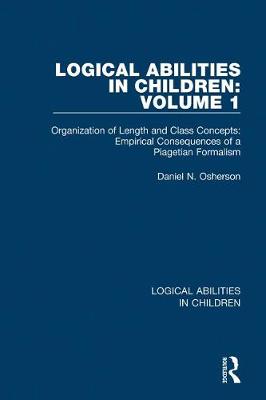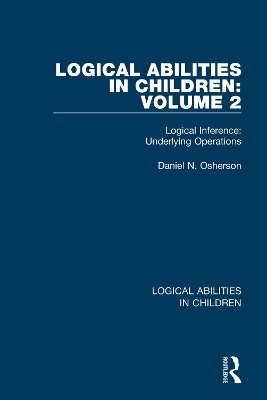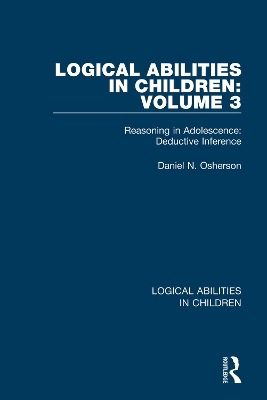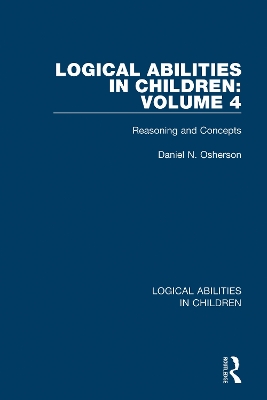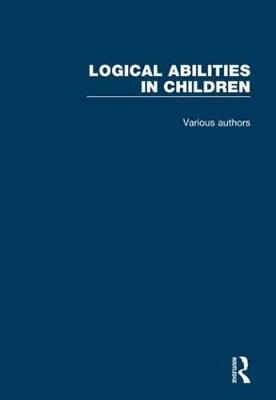Logical Abilities in Children
4 primary works • 5 total works
Book 1
Originally published in 1974, a wide and interesting set of intellectual abilities in children are examined here. Volume 1 of 4 (Organization of Length and Class Concepts: Empirical Consequences of a Piagetian Formalism) converts an axiomatization of classes and asymmetrical relationships (proper to Piaget’s discipline of Genetic Epistemology) into a model of the development of these notions in children. Here may be one of the only attempts to derive predictive consequences from the more philosophically oriented writings of the Genevan School.
Book 2
Originally published in 1974, the second volume of four (Logical Inference: Underlying Operations) provides a process-model for the solution of certain syllogistic reasoning problems. Testable predictions of the model are easily derived, and the available evidence supports the model’s description of the real-time mental steps mediating these logical abilities. A theory of development, connected to the model, makes these volumes all the more important for cognitive, developmental, and educational psychologists, as well as educators and linguists.
Book 3
Originally published in 1975, this volume (3 of 4) presents an expanded model of certain deductive abilities in children and adults. A partial explanation of the growth of these abilities was suggested in Volume 2 of this series, and it is amplified here, both with regard to propositional logic and the logic of class inclusion. A new methodology is employed, the issue of the effect of content in deductive reasoning is covered, and developmental questions are reformulated. Although only data from experiments with adolescents are presented here, the volume sets the stage for potentially illustrating developmental comparisons, a topic pursued in Volume 4 of this novel and inventive series.
Book 4
Originally published in 1976, this fourth and final volume in a series that met with critical acclaim is concerned with a certain kind of answer to the question "What distinguishes the concepts that are a natural part of human languages from those that are merely expressible in language?" The kind of answers contemplated rely on formal properties of the logics that overlay the two sorts of concepts. The author presents a substantive theory of natural concepts which helps to make concrete the methodological proposals. In order to make the theory more manageable, it is restricted to sentential modifiers expressed in English. Although these proposals are substantive, the methodology they exemplify may be of even more significance. Some of the ideas in the author’s approach derive from the work of Chomsky, and several issues relevant to the growth of logical thinking are also treated with data that speak to questions raised in Volume 3, concerning qualitative change through development. This final volume in the series will be essential reading for all concerned with both logical abilities in children, their development, and novel methodological approaches to research bearing on this and related issues.
Logical Abilities in Children (4 Volume set), was originally published between 1974 and 1976 to critical acclaim. Now available again as individual titles or a set of 4, the author draws on Piagetian theory to examine logical ability in children through to adolescence. The set will be interesting reading for all concerned with both logical abilities in children, their development, and novel methodological approaches to research bearing on this and related issues at the time.
